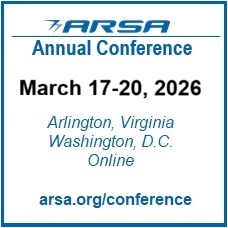FAA Finally Clarifies Designee Privilege
On May 13, the FAA clarified a repair specification designated engineering representative’s (RS-DER) ability to rescind an approval of engineering information. The issue arose when a member received a letter for its RS-DER “withdrawing” the approval of data being used to support a major repair. ARSA originally challenged this result in a Dec. 6, 2012 letter to the FAA and the agency responded to the original request on April 11, 2013. However, the response did not address the impact of such an action or how it may be challenged, so the association requested further clarification on June 5, 2013.
The agency agreed the regulation empowering DERs only grants the privilege of approving information; it does not give designees authority to make “unsafe condition” determinations. Therefore, the notification from the DER is merely that — a notification that the designee believes the substantiating data may not show compliance with applicable regulations. It puts the user on notice that additional data or a second opinion should be sought but does not “revoke” the approval and it does not mean that previous use of the data has created an unsafe (or even non-compliant) condition in articles that were processed under the approval.
Unless and until the FAA determines an airworthiness directive is required (because the use of the data created an unsafe condition), the articles or products worked on before the notification remain unaffected.
Previously from ARSA...
ARSA Seeks Clarification of FAA Designee Privilege
December 10, 2012
On Dec. 6, 2012, ARSA submitted a letter to the FAA requesting clarification of the privileges afforded to a repair specification designated engineering representative (RS-DER). The issue giving rise to the association’s request centered upon an RS-DER approval, and later “rescission” of that approval by the designee.
ARSA believes that such action is inappropriate under FAA rules. Specifically, the regulation empowering DERs only grants the privilege of approving information; it does not give designees authority to make “unsafe condition” determinations that would form the basis for revocation of an existing FAA approval. That regulatory limitation is reflected in FAA Order 8110.37E, the “Designated Engineering Representative Handbook,” which specifies that only the FAA, not its designees, can make such determinations. ARSA’s clarification request aims to remove potential uncertainty over repair specification approvals.
The FAA response (April 11, 2013) may be found here.
ARSA’s reply (June 5, 2013) to the FAA response may be read here.
To see more about how ARSA works on behalf of the aviation maintenance industry, visit our ARSA Works page.








